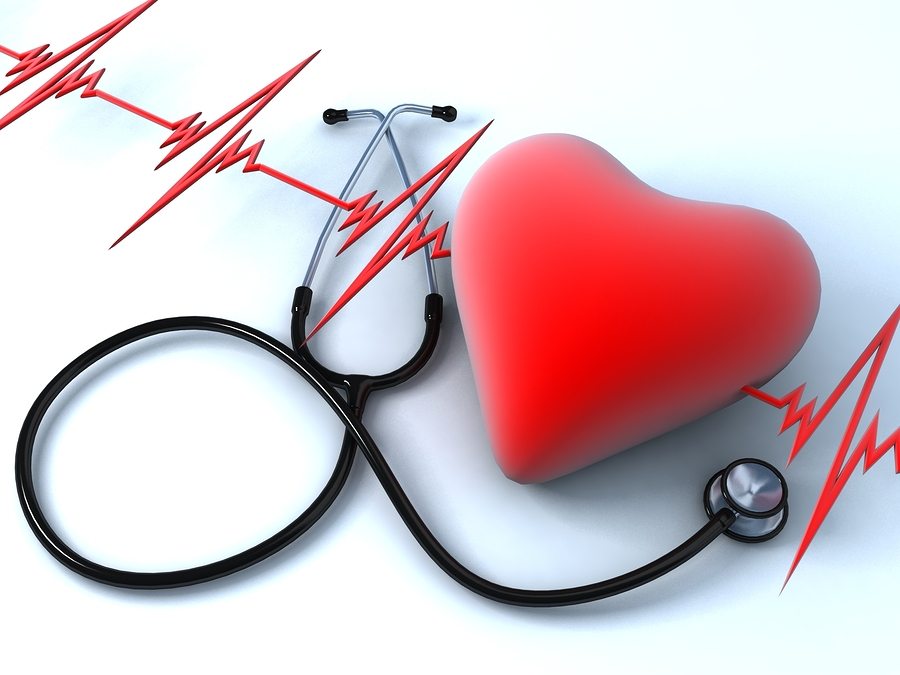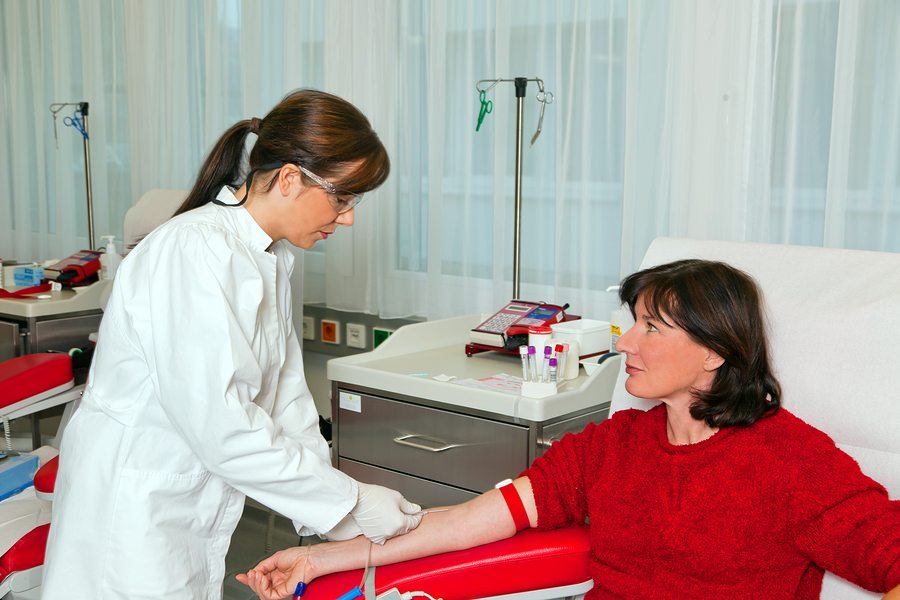Cardiovascular Health
Patients with heart conditions take medications to help better manage their condition. However, some drugs and devices may cause adverse effects to cardiovascular health. Find out which products cause the most harm.
About Cardiovascular Health
 Heart disorders affect millions of individuals every year. Although the best way to treat a heart disorder is through an early diagnosis and treatment, some people may not recognize the early warning signs. Each heart condition shares similar symptoms, but may require different methods for treatment. If left untreated, heart conditions can lead to
Heart disorders affect millions of individuals every year. Although the best way to treat a heart disorder is through an early diagnosis and treatment, some people may not recognize the early warning signs. Each heart condition shares similar symptoms, but may require different methods for treatment. If left untreated, heart conditions can lead to
- Heart failure
- Heart attacks
- Strokes
- Aneurysms
- Death
Your doctor may prescribe blood thinners, cholesterol-lowering medications, prescription drugs for high blood pressure, or an arrhythmia agent to treat your specific heart health needs. Unfortunately some heart medications and devices are defective, meaning they have the potential to cause more harm than good. It’s also important to note that mixing several drugs together can potentially compromise treatment and cause adverse side effects. Ask your doctor if your new prescription could interact with other drugs you are taking, and make sure you know what negative side effects are considered normal.
Blood Thinning Medications
 With heart failure, the heart doesn’t pump as well as it should; subsequently, it is unable to supply the body’s cells with enough blood. Approximately 5 million people are currently living with heart failure, and each year, an additional 500,000 new cases are diagnosed. A weakened heart may result in fatigue and shortness of breath. Treatment for heart failure can include reducing your sodium intake, exercising regularly, keeping track of your symptoms, and maintaining a healthy weight. You may also be prescribed a medication to help manage your symptoms.
With heart failure, the heart doesn’t pump as well as it should; subsequently, it is unable to supply the body’s cells with enough blood. Approximately 5 million people are currently living with heart failure, and each year, an additional 500,000 new cases are diagnosed. A weakened heart may result in fatigue and shortness of breath. Treatment for heart failure can include reducing your sodium intake, exercising regularly, keeping track of your symptoms, and maintaining a healthy weight. You may also be prescribed a medication to help manage your symptoms.
Prescription drugs like Xarelto help reduce many of the symptoms associated with heart failure, but can sometimes lead to adverse side effects. For example, patients taking Xarelto have reported gastrointestinal bleeding, cerebral hemorrhage, and blood clotting. These patients were put at risk because Xarelto’s manufacturer, Bayer Healthcare, didn’t include labelling explaining that the drug could lead to severe internal bleeding. Individuals were often unaware they had internal bleeding until it was too painful and irreversible damage had already been caused.
Signs of internal bleeding include:
- Bruising easily
- Experiencing red or dark urine or bowel movements
- Coughing up blood
- Bleeding from cuts that last longer than is considered normal
Women experiencing internal bleeding may also have unusually heavy menstruation. You should contact your doctor if you experience these symptoms after taking a blood thinner.
Prescription Drugs for High Cholesterol
 Found in every cell in the body, cholesterol has a good type and a bad type: high-density lipoproteins (HDL) and low-density lipoproteins (LDL). The bad type of cholesterol, called LDL, can potentially cause life-threatening blood clots that may lead to a heart attack or stroke. The higher your cholesterol, the greater the risk for heart disease and other serious medical conditions. Unfortunately, only one out of every three adults with high LDL cholesterol are taking the necessary steps to improve their health.
Found in every cell in the body, cholesterol has a good type and a bad type: high-density lipoproteins (HDL) and low-density lipoproteins (LDL). The bad type of cholesterol, called LDL, can potentially cause life-threatening blood clots that may lead to a heart attack or stroke. The higher your cholesterol, the greater the risk for heart disease and other serious medical conditions. Unfortunately, only one out of every three adults with high LDL cholesterol are taking the necessary steps to improve their health.
Drugs like Zocor are often prescribed to reduce LDL cholesterol. Manufactured to increase good HDL cholesterol levels while lowering bad LDL cholesterol, Zocor was once prescribed to more than 3 million people. While taking the medication, many people experienced dangerous side effects, such as:
- Atrial fibrillation
- Pancreatitis
- Kidney failure
- Liver damage Muscle injury
- Rhabdomyolysis
The risk of rhabdomyolysis – an incurable breakdown of muscle fibers – prompted lawsuits against the manufacturer, Merck & Co., Inc. to be held responsible for improper warning and labels.
In addition to taking a prescription medication designed to lower your LDL, there are many other steps you can take to improve your cholesterol. Limiting the amount of sodium and trans fat in your diet, reducing alcohol consumption, losing weight, and exercising at least 30 minutes each day can help to improve your cholesterol and overall health. Combined with a medication treatment, modifications will gradually adjust cholesterol levels – although results may vary from person to person.
High Blood Pressure Medications
 High blood pressure comes from the heart trying to pump out blood through narrow arteries. An estimated 70 million American adults have high blood pressure – affecting one in every three people. It generally takes years for high blood pressure to develop, which is why you may not experience symptoms right away. Even so, damage can still be done to your blood vessels from the very beginning. High blood pressure is often associated with:
High blood pressure comes from the heart trying to pump out blood through narrow arteries. An estimated 70 million American adults have high blood pressure – affecting one in every three people. It generally takes years for high blood pressure to develop, which is why you may not experience symptoms right away. Even so, damage can still be done to your blood vessels from the very beginning. High blood pressure is often associated with:
- Heart attacks
- Strokes
- Chronic heart failure
- Kidney disease
You can take control of high blood pressure by limiting salt intake, increasing physical activity, limiting alcohol, managing stress, monitoring blood pressure and practicing relaxation techniques. A prescription medication may also help to lower your blood pressure. However, some blood pressure drugs can lead to adverse side effects such as liver damage, renal impairment, acute liver failure, birth defects, and elevated blood potassium.
Do your research before taking a prescription drug for high blood pressure. You may find that the health risks outweigh the benefits. For example, a widely prescribed drug to treat high blood pressure, lisinopril (often sold under the brand names Prinivil and Zestril), was created to relax blood vessels and decrease blood volume.Across the nation, lisinopril consumers have reported liver damage or failure. Various cases state the manufacturer’s carelessness to disclose information about possible negative health consequences from taking the drug, as well as improper testing.
Prescription Drugs for Arrhythmia
 An arrhythmia involves an irregular heartbeat – typically beating too fast or too slow. While most common in older adults, arrhythmias can also occur in children and young adults. When a heartbeat fluctuates, it affects blood pumping to vital organs. If blood flow remains inadequate for an extended period of time, it may cause these organs to be damaged or possibly shut down.
An arrhythmia involves an irregular heartbeat – typically beating too fast or too slow. While most common in older adults, arrhythmias can also occur in children and young adults. When a heartbeat fluctuates, it affects blood pumping to vital organs. If blood flow remains inadequate for an extended period of time, it may cause these organs to be damaged or possibly shut down.
Since an arrhythmia symptom may only happen every once in awhile, it can be difficult to diagnose. However, some signs of the condition may include:
- A racing or slow heartbeat
- Chest pain
- Shortness of breath
- Dizziness
- Fainting
A harmless arrhythmia diagnosis usually does not require specialized treatment. For more serious arrhythmias, prescribed drugs may allow individuals to continue living a normal life.
Amiodarone is a drug which was designed to treat irregular heart rhythms and help keep a normal heart rate. However, many people suffered lifelong side effects that were linked to the drug. These side effects included rhabdomyolysis, lung disease, thyroid disease, blindness, and gastrointestinal disorders. Lawsuits filed claim that manufacturers pressured doctors to prescribe the drug while concealing its dangers. Some cases go into further detail about the lack of consumer warnings and the manufacturer downplaying unfavorable reactions. It’s important to be informed of the risks before beginning a prescription treatment for arrhythmia.
Lifestyle changes can also complement a prescribed drug when treating arrhythmia. Factors such as controlling blood sugar levels, limiting caffeine consumption, monitoring blood pressure, increasing magnesium intake and scheduling regular doctor checkups can all help stabilize arrhythmia symptoms.
Inferior Vena Cava (IVC) Filters
 Venus Thromboembolism (VTE) is a condition that causes blood clots to form deep in the upper extremities, lower extremities, or the pelvis. Patients with VTE who develop these blood clots (known as Deep Venous Thromboses or DVTs) are at a greater risk of developing a Pulmonary Embolism (PE), which occurs when a blood clot travels to the lungs.
Venus Thromboembolism (VTE) is a condition that causes blood clots to form deep in the upper extremities, lower extremities, or the pelvis. Patients with VTE who develop these blood clots (known as Deep Venous Thromboses or DVTs) are at a greater risk of developing a Pulmonary Embolism (PE), which occurs when a blood clot travels to the lungs.
Anticoagulant medications are usually the first step in treating VTE and combatting the presence of DVTs. However, anticoagulants are not effective for all patients. A medical device known as an IVC Filter is often used in these situations. An IVC filter is intended to capture an embolism before it travels to the heart or lungs.
Many patients’ lives have been saved by the use of an IVC Filter. Others, however, have experienced dangerous conditions as a result of using an IVC Filter. These include:
- Filters which broke or shifted after insertion
- Filters that became embedded in a patient’s internal organs
- Filters that caused, rather than prevented, DVT blood clots
Help for Defective Heart Drugs and Devices
If you or a loved one have experienced serious side effects from a drug used treat a heart condition, get a free legal consultation today. Our team will give you options on how to move forward.
Last Edited: March 20, 2017